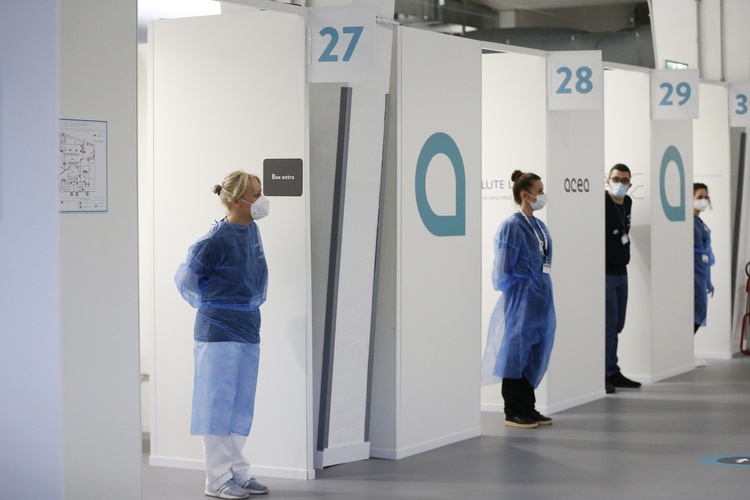The regulator had previously recommended that people get both doses of the same vaccine.
But last week, Italy’s government restricted the use of the AstraZeneca vaccine to people over the age of 60, after an 18-year-old who had received the shot died from a rare form of blood clotting.
Italian authorities had previously recommended AstraZeneca be only given to over-60s, but this was not an outright ban and many regions had been giving it to younger people on a voluntary basis.
This advice was strengthened after the latest review last week.
Italy’s health ministry said anyone under 60 who had already received a first dose of AstraZeneca should now have Pfizer or Moderna – so-called mRNA vaccines – for the second dose.
However, despite the health ministry’s new instructions, Italy’s regions are continuing to implement their own vaccine programs with varying rules.
Italian news agency ANSA reported “chaos in the regions” on Tuesday, saying the latest rule-change on AstraZeneca had “caused confusion”.
Some Italian regional authorities said they will still continue to allow people to take AstraZeneca if they want to amid concerns about the supply of other vaccines, while Campania said it was banning the use of the Astrazeneca and Johnson and Johnson vaccines altogether.
Vincenzo De Luca, regional president of Campania, announced that he had written to the health minister saying his region was against giving mixed vaccinations and claiming that the practice “has not been trialled broadly on an international level”.
In an interview with Italian daily La Stampa on Monday, Health Minister Roberto Speranza stressed that mixing vaccinations was known to be safe and effective.
“Our indications are peremptory and must be followed. It is not a political debate,” he said.
“It’s not the prime minister, ministers or a regional president who decides.
“So-called ‘vaccination crossing’ is something Germany has been doing for two months, which France and Spain have also been doing for some time.
“It’s not made up, these are scientific studies; this is a procedure that has given good results.”
Several other EU countries including Sweden, Norway and Austria are also allowing people to have an mRNA shot for their second dose if they were first vaccinated with AstraZeneca, after those countries also changed their advice on the jab.
The European Medicines Agency (EMA) has stressed that the AstraZeneca jab remains approved for all adults, saying the benefits continue to outweigh the risks.
Most of the AstraZeneca side effects observed so far occurred within two weeks of the first dose.
The second dose is thought to carry an even lower risk, though more data is needed to know for sure.
Data from millions of people vaccinated with AstraZeneca across Europe and the UK indicates that serious side effects after either dose remain extremely rare.
In a monitoring report released this week, AIFA said that in Italy the incidence of blood clots after vaccination was around one per 100,000 injections of AstraZeneca, mainly in people under 60.
It has not received reports of any clots developing after the second dose, the agency said.












